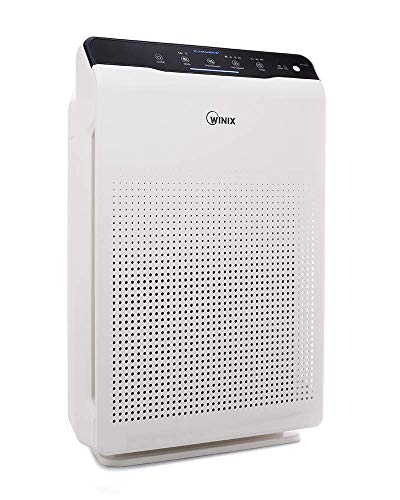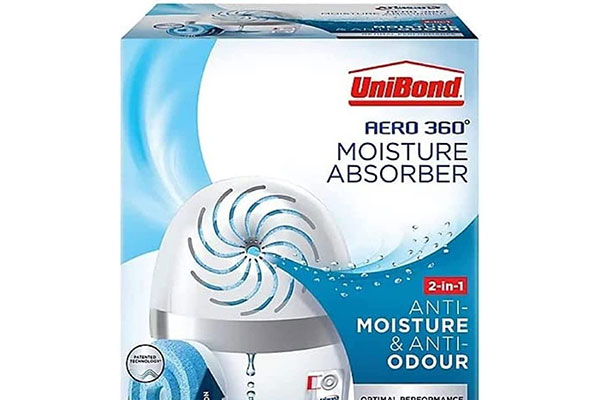Asthma is a lung condition that affects over 300 million people across the globe. Asthma attacks can happen quickly and without any warning. They are noted by a tightening of the esophagus restricting the ability to breath normally. Rescue inhalers are among the most common medications for asthma patients, but more serious cases may require a daily inhaler regimen or regular nebulizer treatments.
A doctor can determine the level of severity of the afflicted, but most often, a physician will recommend the use of a dehumidifier and a humidifier. The use of both devices help regulate humidity levels in relation to outdoor weather conditions. A device called a hygroscope can show what the relative humidity level in your home is as conditions change throughout the year.
What Does a Dehumidifier Do for Asthma?
An asthma patient generally has the easiest time breathing at 30% humidity. Unfortunately, during the summer months, humidity levels can rise to near 100% depending on where you live. Coastal regions tend to have higher humidity making it difficult for asthma sufferers to breathe without difficulty.
Doctors have been known to recommend asthma patients move to a location that is less prone to high humidity levels. Moving to a desert location or a climate with cold, dry air can help an asthma sufferer breath without complication and without the need for additional appliance.
However, not everyone can uproot their lives and move to a new client just to curb their asthma symptoms, so we must rely on advancements made in dehumidifier technologies.
Dehumidifiers are ideal tools for asthma sufferers. Apart from extracting additional moisture from the indoor air, a dehumidifier can help control mould and dust mites that have been known to be harmful to those living with chronic lung conditions.
Both mould and dust mite thrive in moist environments. High humidity levels can allow mould to grow incessantly and dust mites to rapidly increase their numbers in your home. Ridding your home of these irritations can be difficult, so the best thing to do is limit their ability to grow through a high quality dehumidifier system.
Modern dehumidifiers are easier than ever to use. Most come with an easy to install format and convenient collection tank. Depending on the size of the tank and humidity level of your location, you may have to empty the tank once per day or every other day. Other models offer a drainage hose that extracts water from the home without the need for a collection tank. Finding the right one for you is easy as there are so many options to choose from.

WINIX Air Purifier ZERO
- H13 HEPA Filter
- CADR 390m³/h (Up to 99 m²) for Allergy Sufferers
- PlasmaWave Technology Reduce 99.999% Hay Fever, Pollen and Odours
What Does a Humidifier Do for Asthma?
A humidifier works opposite of a dehumidifier. Certain areas of the world and specific times of the year can be remarkably dry. Chest congestion can go along with cooler temperatures and when the climate becomes too dry, that congestion can set up in the lungs and air passages of an asthma patient making it difficult to find relief. When this happens, rescue inhalers and other methods of alleviating the problem are ill-effective.
Congestion can be difficult to manage, especially when asthma symptoms combine with allergy issues, so the best solution is a humidifier. A humidifier adds just the right amount of moisture to the air to break up harmful congestion and allow the asthmatic to breathe freely once again. A humidifier is often recommended for babies who have regular congestion as it is the most gentle means of alleviating the issue.
Modern humidifiers are very affordable to operate and work quietly, so they will not keep the person up at night. They also come in a slim design so they can easily fit in with your home’s décor. Instead of emptying a humidifier, you add water to the tank and some allow you to add additional decongestants such as vapor rub to expediate relief.
Which One Should I Choose
The key ingredient in knowing whether to choose a dehumidifier or a humidifier is identifying your asthma triggers. Do you find yourself getting short of breath during the summer when humidity levels are high or feeling congested when the air is dry? Knowing your own personal triggers will help you determine which appliance is right for you.
People with chronic asthma must be vigilant in their pursuit of relief. Asthma attacks can happen quickly, but careful management of symptoms and having the right tools in place to help is essential. A dehumidifier and humidifier in your home will help you enjoy the right type of relief when necessary. Remember, a dehumidifier removes moisture during the warmer, humid months, and a humidifier adds moisture to the air to relieve congestion during dry cooler months.
Modern units are easy to maintain and offer important features such as whisper quiet technology and various fan speeds. Take your time when choosing the right unit to find the right one for you.
Last update on 2025-02-28 / Affiliate links / Images from Amazon Product Advertising API








